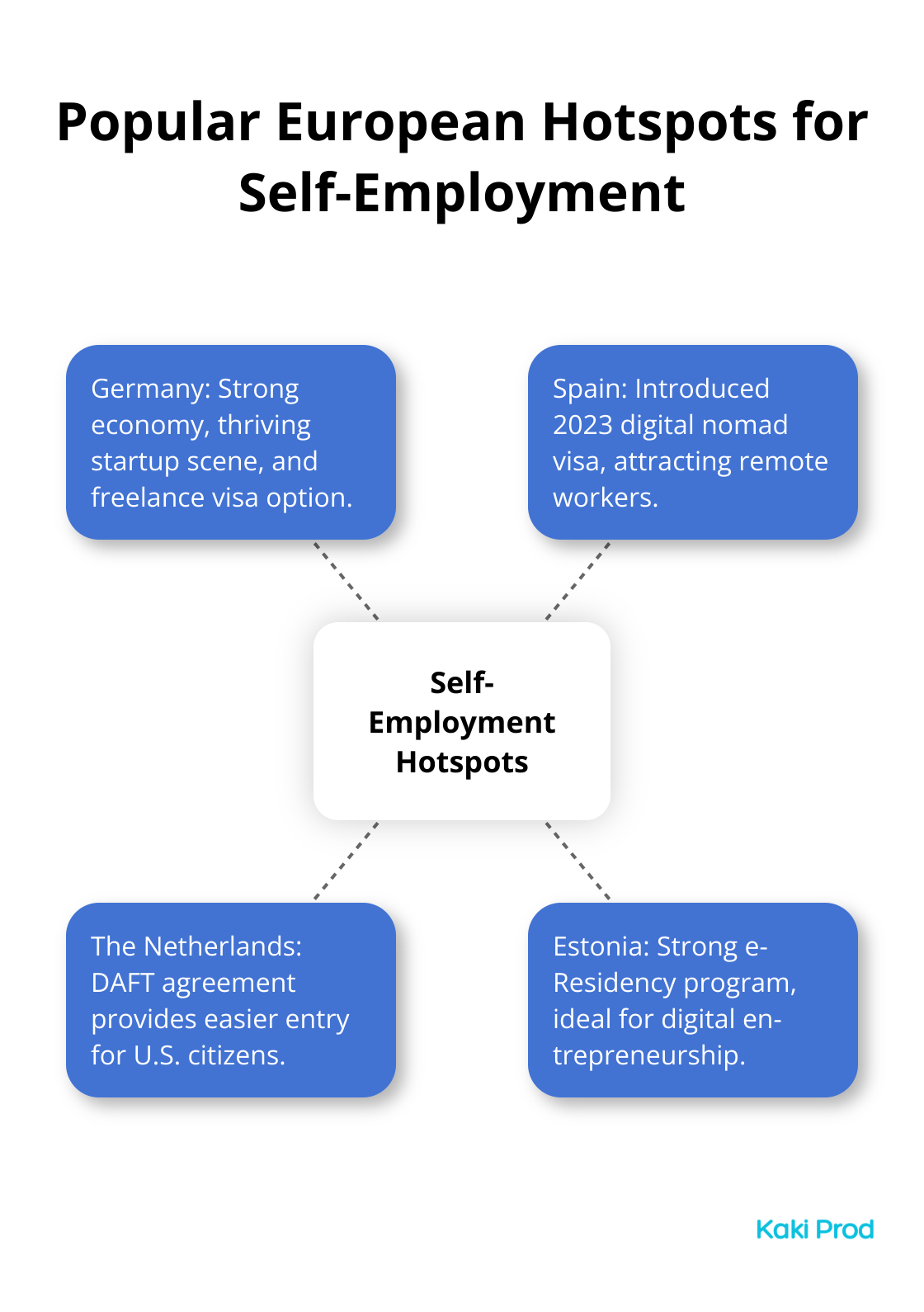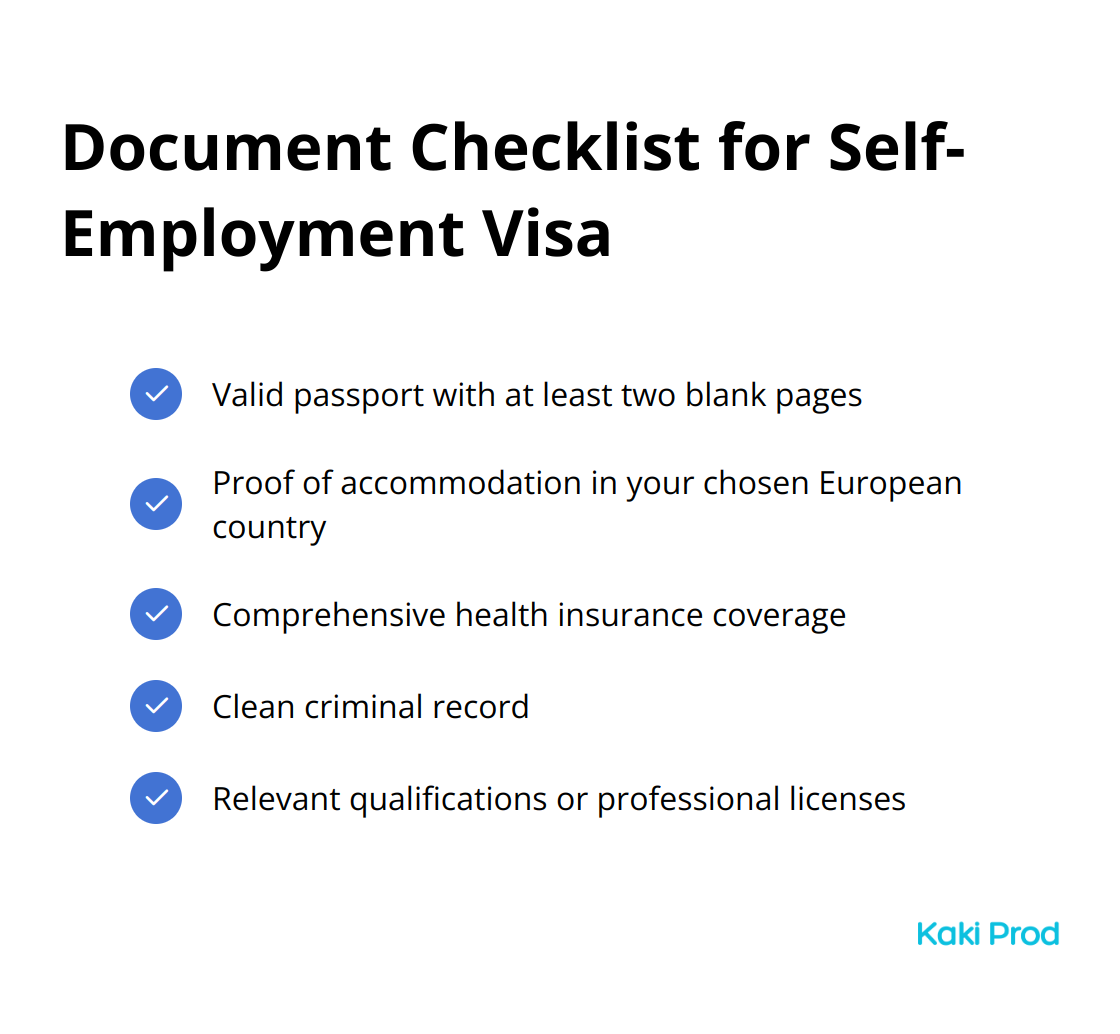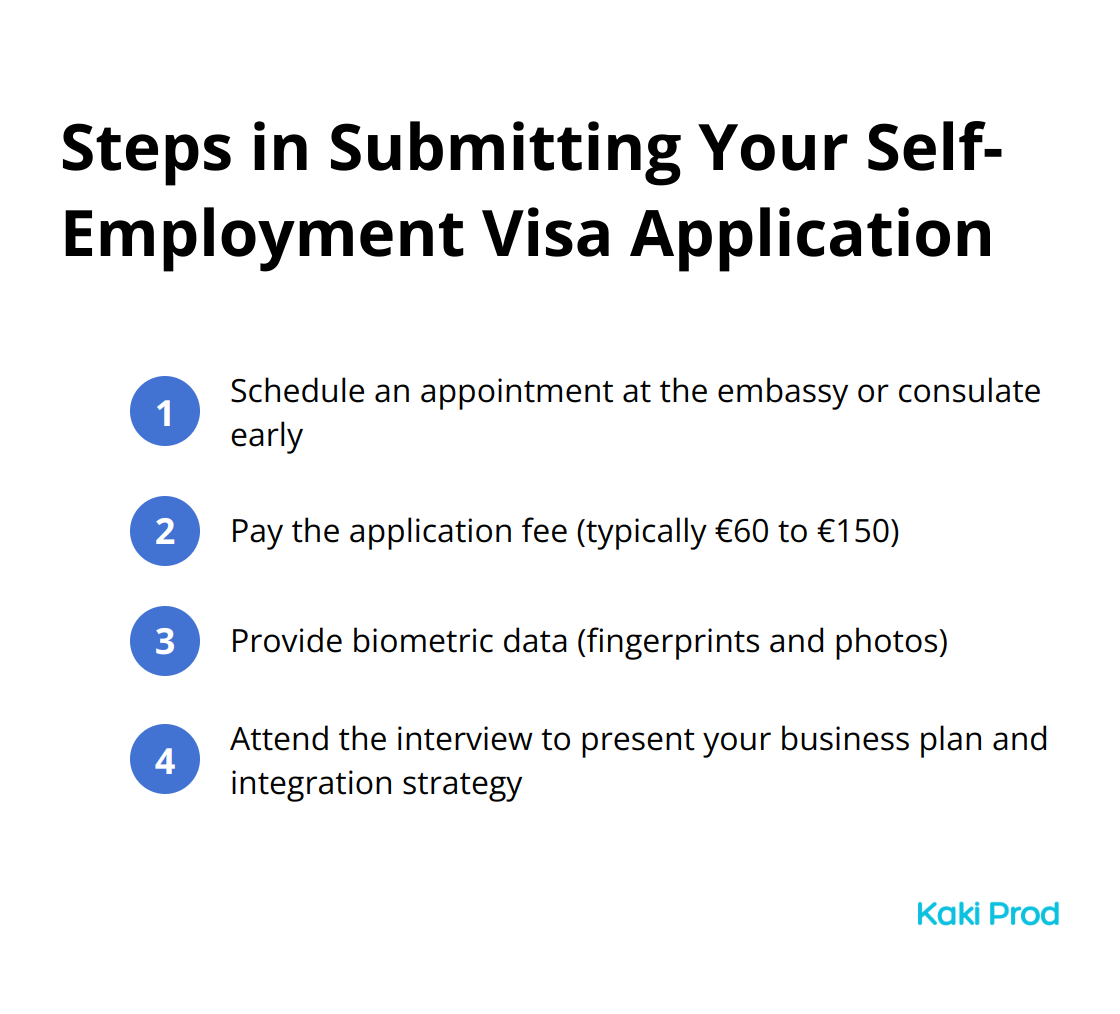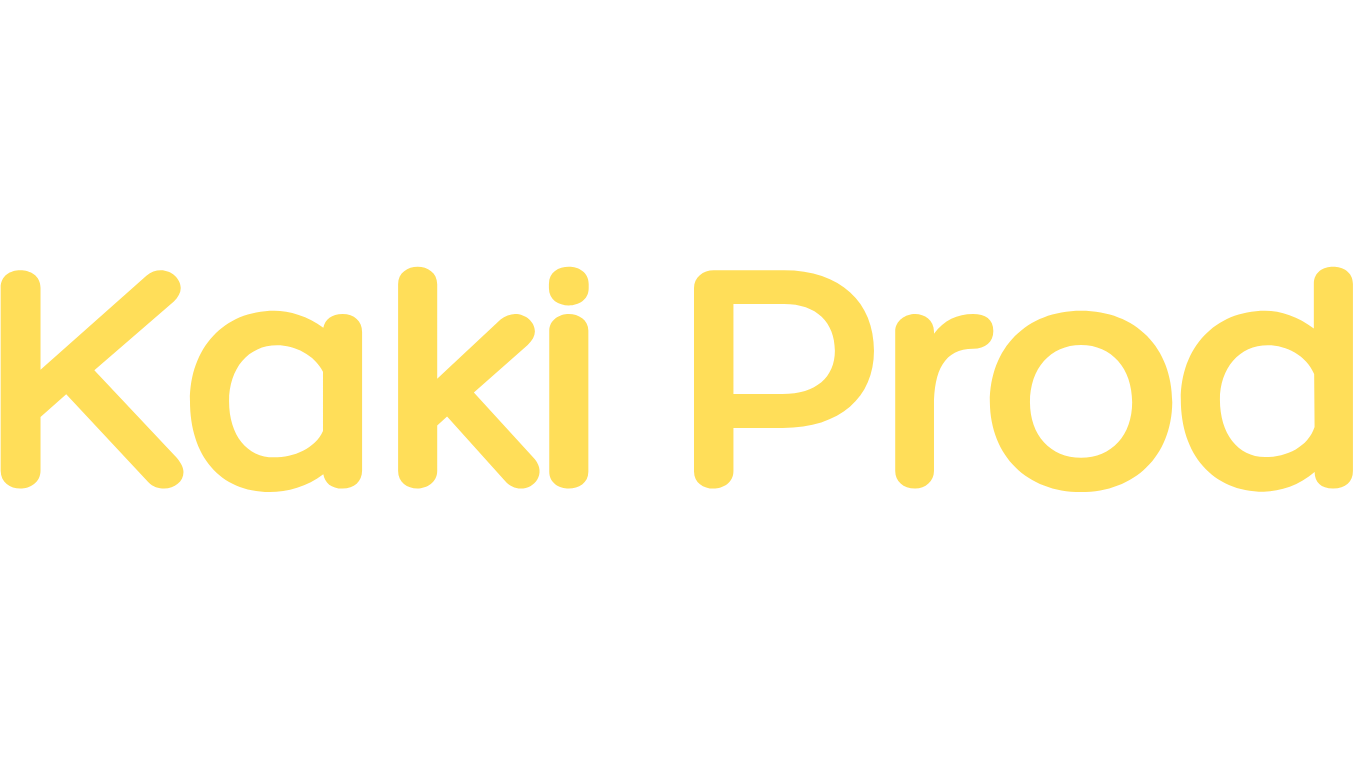At Kaki Prod, there’s a seismic shift happening — professionals are ditching the 9 to 5 grind and diving into the freelance pool across Europe. Guess what’s becoming their golden ticket? The self-employment visa. It’s the holy grail for entrepreneurs and freelancers itching to plant their business flag in the European soil.
This guide? Think of it as your personal GPS for navigating the self-employment visa maze. We’re diving deep into the nuts and bolts — key requirements, step-by-step application how-tos, and some savvy (some might say killer) success tips. Oh, and we’re not stopping there. We’ll spotlight some of Europe’s top hotspots for the self-employed crowd and arm you with resources to turbocharge your journey.
What Are Self-Employment Visas in Europe?
Definition and Purpose
Self-employment visas in Europe – a ticket for non-EU citizens to make their mark independently across European shores. Catering to the rogues and rebels (think freelancers, those entrepreneur types), this visa sets the stage for a business venture drama on the European scene.
Key Differences from Other Work Visas
Self-employment visas – they let you be you, your own boss. No strings to an employer. It’s Control Central, folks, but hey, hold your horses – there are strings attached. Responsibilities, anyone?
- Business Viability: Step right up with your viable business idea.
- Financial Stability: Got funds? Prove you’re good for it.
- Economic Benefit: You might need to show your business will juice up the local economy (looking at you, Germany).
So, more hoops than the regular 9-to-5 gig visas. Talk paperwork – stack of papers (think business plans, qualifications, financial proof). The Netherlands, with its Dutch American Friendship Treaty (DAFT) – €4,500 investment gets you in the game.
Renewal Process
Keep this show rolling, and heed the success and sustainability of your biz – unlike those stuck-at-a-company-type visas that hinge on employment continuation.
Popular European Hotspots for Self-Employment
Who’s rolling out the red carpet for self-employed folks? Check it:
- Germany: Economy like steel, thriving startup vibes, nod to the freelance visa.
- Spain: The 2023 digital nomad visa shook things up – remote workers, armchairs this way.
- The Netherlands: With DAFT, U.S. citizens find their easier footing.
- Estonia: e-Residency game strong – digital entrepreneurship takes the throne.
Berlin, Amsterdam – tech oases, attracting the self-employment pilgrims. Business heaven and life’s sweet mix – hard to resist.

Onward we go – get a grip on the specific rules of the self-employment visa road in Europe. Let’s break down the who’s who and the what’s what of eligibility, finances, and other critical tidbits you gotta know.
What Are the Requirements for a Self-Employment Visa?
Prove Your Business Viability
First up, the business plan. Think of it as your golden ticket, and it better shine. Immigration officials want to see that your idea is more than just a whim. Take Germany-they’re not just handing out welcomes. They want you to spell out how your business is going to jolt the local economy to life. We’re talking market analysis, money forecasts, growth strategies-the works.
Pro tip: Phone a friend (or a local expert). Get them to scan your plan for those sneaky red flags that might trip you up.
Financial Proof
Show me the money-and that’s Europe talking. While the fine print varies, one thing’s crystal clear: prove you won’t be a financial burden. The Netherlands, for example, says Americans need to splash at least €4,500 to get cozy under the Dutch American Friendship Treaty. Spain’s digital nomad visa is waving a €2,763 per month income flag.
Heads up! These aren’t just numbers; they’re the bare minimums. Better have six months of expenses packed in savings, besides your business cash.
Language Proficiency
Do you speak…anything local? Language bars are getting higher. Italy wants you chatting in basic Italian for long stretches. Even where it’s not carved in stone, speaking the lingo can be your secret sauce-boosts approval odds and could do wonders for your business mojo.
Consider cracking open those language books pre-application. Shows you’re in it for the long haul, which checks the right boxes for immigration honchos.
Document Checklist
Roll call for the paperwork lineup. It’s different strokes for different folks (or countries), but you’ll need:
- Valid passport
- Proof you’ve got a roof over your head
- Health insurance coverage
- Clean criminal record
- Relevant qualifications or professional licenses
Pro tip: Start the paper chase early. Some goodies, like those background checks, can take their sweet time.

Integration Requirements
Ever heard of integration hoops? France is waving that flag for long stints. Might mean signing an integration contract or acing a civics quiz. Not always a thing with initial self-employment visas, but for a long-haul plan, it’s a make-or-break.
Want to beef up your application? Show them your local side. Dive into business clubs or volunteer gigs-they score high on the commitment chart.
Going after a self-employment visa in Europe-it’s a marathon, not a sprint, packed with hoops and hurdles. Let’s pull back the curtain on the nitty-gritty of the application process, the game-changer between you and living the European dream.
How to Apply for a Self-Employment Visa in Europe
Gathering Your Documents
Alright, first things first-start gathering your documents a solid six months before you plan to pack up and bounce. Here’s the rundown:
- A valid passport with at least two blank pages (yes, void of stamps and scribbles)
- Proof of where you’re gonna crash in your dream European spot
- Comprehensive health insurance coverage
- A ridiculously detailed business plan
- Bank statements flaunting six months’ worth of funds-no funny business
- Your paper trail of diplomas and shiny certificates
- Police clearance-it’s like a trust fall with the authorities.
Insider tip: Get official translations of anything that isn’t in English or the local lingo. Especially in Germany-if it ain’t court-certified, you’re just tossing euros into the wind.
Submitting Your Application
Once your paperwork is stacked, it’s game time. Applications typically go through embassies or consulates back home. Keep your eyes on these nuggets of wisdom:
- Snag an appointment early. Those lines? Hit ’em before they hit back-especially in hotspots like Germany and Spain.
- Shell out for the application fee. You’re looking at €60 to €150, give or take a latte.
- Biometric data-fingerprints, photos-the works. It’s a thing.
Immigration peeps will dissect your documents like they’ve got a Ph.D. in you-especially your bankroll and biz plan.

The Interview Process
Many places? They want face-time. This interview isn’t just about dotting i’s and crossing t’s-it’s your TED Talk moment to sell your biz dream and how you plan to mesh into the community like you were born there.
Be prepped to dive into:
- Elaborate tales of your business concept
- Financial blueprints and where you found the treasure
- Local market know-how and sizing up your competition
- How you’ll be Team Europe-hiring plan included
- Language game and how you’re planning to vibe with the locals
Pitch like a seasoned pro-confidence and clarity are your BFFs here.
Processing Times and Potential Hurdles
Now, hit pause-processing takes a while. The Netherlands? Give it 3-6 months. And in Spain? Well, their digital nomad visa flows with 2-year renewals, leading you to that sweet permanent residency after five years.
But it ain’t all sunshine and rainbows:
- Skimpy docs
- Thin bank accounts
- Weak market need for your venture
- Skepticism about your integration chops
Denied? Chin up, player. Most places let you appeal, or you can rejig and try again-don’t take no for the final answer.
Final Thoughts
So, you’re eyeing a self-employment visa in Europe, huh? Buckle up-this ride needs meticulous planning and, yes, unwavering dedication. Your business plan? That’s your cornerstone, your manifesto, painting a picture of how your baby is going to shake up the local economy. Think financial stability, language skills, efforts to fit in-all these boost your approval odds.
Now, the application isn’t a quick swipe right. It’s an early bird game that requires attention to detail like a hawk. You want those docs in a neat stack, your interview pitch shining like a diamond, and your business vision-crystal clear and bursting with confidence. And then…you wait. Patiently. It might take from a few months to half a year-so not your usual Amazon Prime delivery.
For the full playbook on moving abroad, hit up Kaki Prod for the good stuff to support your leap. Sure, snagging that self-employment visa is a hurdle, but it’s also your pass to new horizons and cool stories. Ready to dive into this dynamic powerhouse of a region? Make that first step count-your dream biz is waiting.

